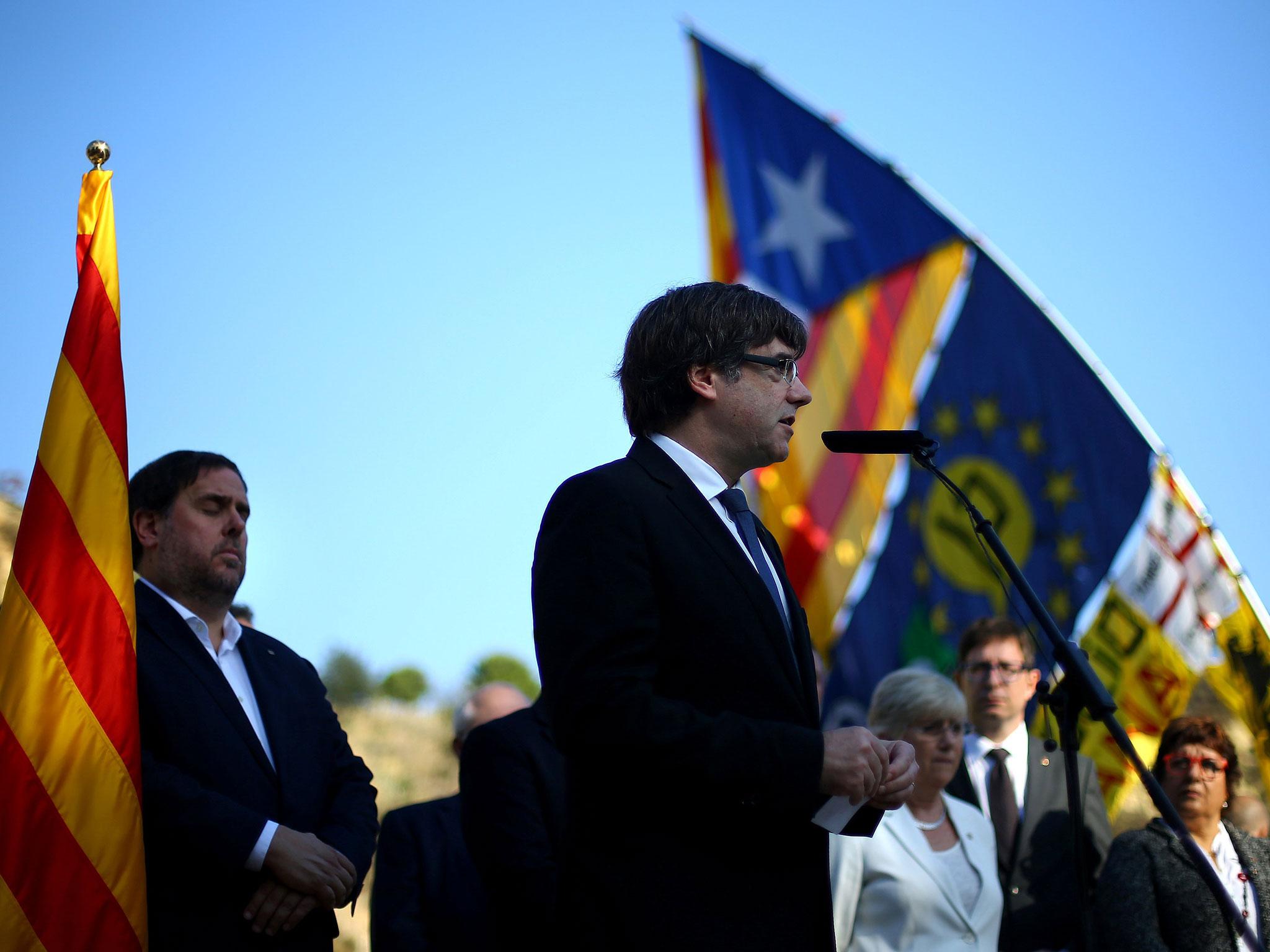Removing the Catalan president and triggering elections – what suspension of autonomy could mean for Catalonia
The removal of the elected Catalan government and its substitution by a viceroy sent from Madrid will certainly provoke the wrath of the majority of Catalan society

Your support helps us to tell the story
From reproductive rights to climate change to Big Tech, The Independent is on the ground when the story is developing. Whether it's investigating the financials of Elon Musk's pro-Trump PAC or producing our latest documentary, 'The A Word', which shines a light on the American women fighting for reproductive rights, we know how important it is to parse out the facts from the messaging.
At such a critical moment in US history, we need reporters on the ground. Your donation allows us to keep sending journalists to speak to both sides of the story.
The Independent is trusted by Americans across the entire political spectrum. And unlike many other quality news outlets, we choose not to lock Americans out of our reporting and analysis with paywalls. We believe quality journalism should be available to everyone, paid for by those who can afford it.
Your support makes all the difference.The Spanish government has announced that it will meet next Saturday in order to trigger article 155 of the Constitution, which allows it to suspend the autonomy of a region if it “does not fulfill the obligations imposed upon it by the constitution or other laws, or acts in a way that is seriously prejudicial to the general interest of Spain”.
The suspension of Catalan self-rule is an unprecedented decision since the restoration of democracy in Spain in the 1970s, and it will deepen the political conflict in Catalonia. The activation of article 155 will probably lead Catalan authorities to pronounce an official declaration of independence in the following days, and a new cycle of street mobilisations and police repression is likely to take place.
The Catalan government (Generalitat, in Catalan) was restored in 1977 by virtue of an agreement between the Spanish post-Francisco Franco Prime Minister Adolfo Suárez and Generalitat’s leader in exile Josep Tarradellas. In 1978, the Spanish constitution recognised the right of Spanish “regions and nationalities” to self-rule, including Catalonia.
The powers of the autonomous regions were progressively enlarged during the decades that followed the approval of the 1978 constitution. Nowadays, the Catalan Generalitat enjoys a wide range of competencies, including providing public services such as health and education, collecting taxes and maintaining public order.
The Mossos d’Esquadra – the regional police body – is responsible for security in Catalonia, while the Spanish National Police and the semi-military Civil Guard have very limited competences.
Limitations of the Catalan self-rule were imposed by Mariano Rajoy’s government last September, with the aim of preventing the Generalitat to celebrate the 1 October self-determination referendum – which had been forbidden by the Spanish Constitutional Court.
On 15 September, the Spanish government intervened the Generalitat’s accounts to avoid the use of public money to fund the referendum. Besides, thousands of police agents and civil guards were sent from other Spanish regions to prevent the vote, which they heavily repressed. These measures were taken without applying the procedure established by article 155 of the constitution.
The scope of article 155 is extremely wide: it entitles the Spanish government to “take all measures necessary to compel the community to meet the said obligations, or to protect the above mentioned general interest”, with the authorisation of the Senate –where the ruling Popular Party (PP) has as majority.
The Socialist Party (PSOE), which wholly supports Rajoy’s government regarding the Catalan crisis, has proposed that a Rajoy’s minister assumes the executive power in Catalonia (which would imply the destitution of Carles Puigdemont’s elected government), with the aim of convoking advanced regional elections.
Others want to go further: president of Popular Party in Catalonia, Xavier García Albiol, has advocated the use of article 155 to “promote changes” in the regional police and the Catalan education system.
If Mariano Rajoy’s government convokes regional elections in Catalonia against the will of most Catalan parties, pro-independence parties may boycott the vote. This would not be a problem for some PP leaders such as Albiol and MP Pablo Casado, who have advocated the illegalisation of pro-independence parties in Catalonia – which obtained 48 per cent of the vote in the last regional election.
Several experts in Constitutional law have raised doubts about the constitutionality of removing the Catalan president and convoking regional elections, insofar as convoking elections is an exclusive competence of the president of the Generalitat.
The Spanish government has not announced yet to what extent it will intervene the Catalan government, but Vice Prime Minister Soraya Sáenz de Santamaría has stated her intention to “preserve the economic recovery” in Catalonia, which probably means that the Spanish government will take control of the Generalitat’s Department of Economy, whose current head is the pro-independence leader Oriol Junqueras.
The suspension of Catalan self-government will have serious political consequences. The arrival of thousands of national police officers and civil guards to Catalonia in September was experienced by large sectors of the Catalan society as a sort of invasion –“Occupation forces out!” has been one of the most frequently scanted slogans in recent demonstrations.
The removal of the elected Catalan government and its substitution by a viceroy sent from Madrid will certainly provoke the wrath of the majority of the Catalan society – including many Catalans who do not support the independence of the region but cherish its political autonomy.
By triggering the 155 article, Mariano Rajoy is creating the conditions for a new cycle of mass demonstrations and police repression in the streets of Catalonia. Besides, Catalan pro-independence parties will probably vote an official declaration of independence in response to its triggering. A negotiated and peaceful solution to the conflict is more unlikely than ever.
Join our commenting forum
Join thought-provoking conversations, follow other Independent readers and see their replies
Comments